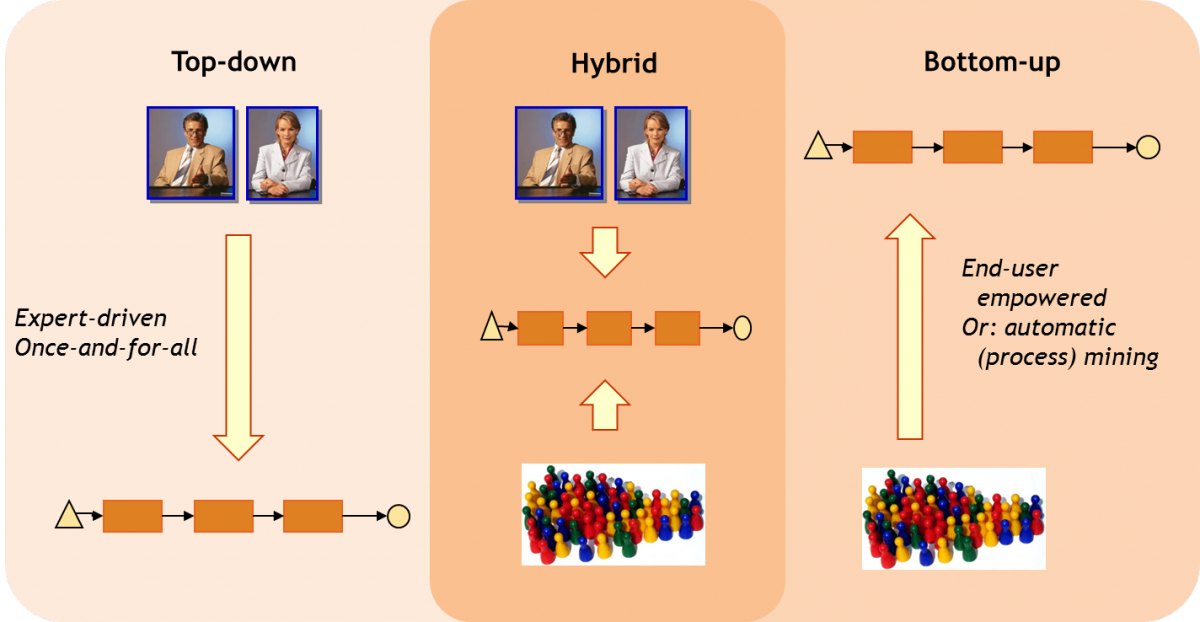Process Strand
Agility has emerged as an important common characteristic of successful businesses. Organisations of any size benefit from quick response to volatile markets and rapid changing user requirements. Conventional business process modelling and execution approaches have found themselves overstretched in such situations due to the lack of flexibility and the amount of overhead required for predefined process models.
The approach is based on the insight that traditional “top-down” business process modelling approaches are too rigid and inflexible to capture the actual way processes are executed while pure “bottom-up” approaches may easily lose the focus and the alignment with organisational goals. Therefore, business process models are made agile and open by a joint hybrid approach. In order to achieve this vision, the strict distinction between build time and run time operations are softened. Process activities are presented to a user in a way that allows for individual adaptations. Any changes or enhancements to the process activities are documented and monitored. The advantage is two-fold:
- process-related valuable resources and experiences are proactively presented to the others in the right context;
- when sufficient adaptation information are accumulated, we can decide whether or not to tune process models against the reality of actual process executions.
